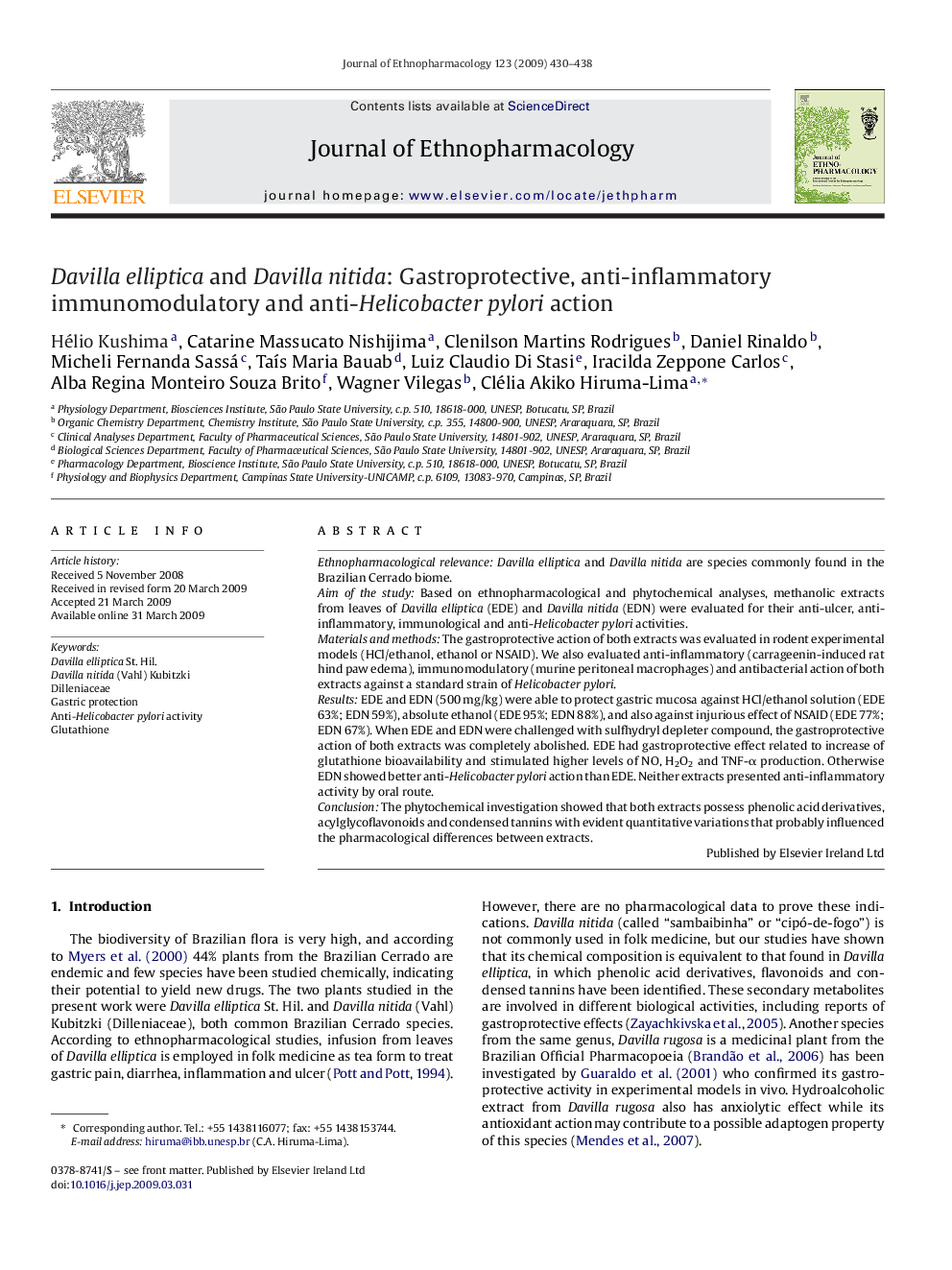| Article ID | Journal | Published Year | Pages | File Type |
|---|---|---|---|---|
| 2546396 | Journal of Ethnopharmacology | 2009 | 9 Pages |
Ethnopharmacological relevanceDavilla elliptica and Davilla nitida are species commonly found in the Brazilian Cerrado biome.Aim of the studyBased on ethnopharmacological and phytochemical analyses, methanolic extracts from leaves of Davilla elliptica (EDE) and Davilla nitida (EDN) were evaluated for their anti-ulcer, anti-inflammatory, immunological and anti-Helicobacter pylori activities.Materials and methodsThe gastroprotective action of both extracts was evaluated in rodent experimental models (HCl/ethanol, ethanol or NSAID). We also evaluated anti-inflammatory (carrageenin-induced rat hind paw edema), immunomodulatory (murine peritoneal macrophages) and antibacterial action of both extracts against a standard strain of Helicobacter pylori.ResultsEDE and EDN (500 mg/kg) were able to protect gastric mucosa against HCl/ethanol solution (EDE 63%; EDN 59%), absolute ethanol (EDE 95%; EDN 88%), and also against injurious effect of NSAID (EDE 77%; EDN 67%). When EDE and EDN were challenged with sulfhydryl depleter compound, the gastroprotective action of both extracts was completely abolished. EDE had gastroprotective effect related to increase of glutathione bioavailability and stimulated higher levels of NO, H2O2 and TNF-α production. Otherwise EDN showed better anti-Helicobacter pylori action than EDE. Neither extracts presented anti-inflammatory activity by oral route.ConclusionThe phytochemical investigation showed that both extracts possess phenolic acid derivatives, acylglycoflavonoids and condensed tannins with evident quantitative variations that probably influenced the pharmacological differences between extracts.
